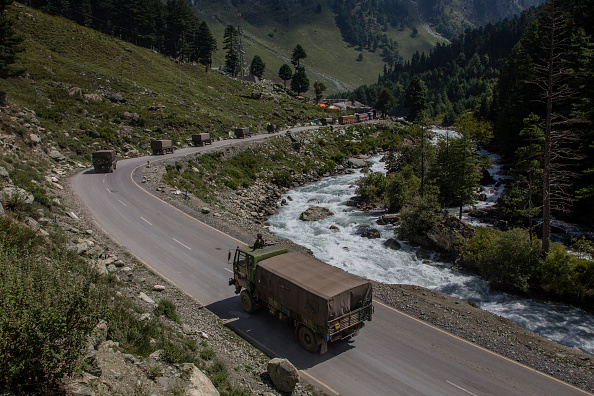
 Reciprocity in Action
Reciprocity in ActionChinese diplomats will need to obtain United States government approval before visiting American schools and universities, Secretary of State Mike Pompeo announced this Wednesday. Citing reasons of reciprocity, Pompeo argued that Beijing actively prevents American diplomats from conducting standard business. Earlier in the week, Pomepo also said that he expected China's Confucius Institutes, which have served as Chinese cultural and education centers in the U.S., to be shut down by the end of 2020 over concerns that the centers allow "spies and collaborators" to infiltrate U.S. colleges. In response, a spokesperson from the Confucius Institute U.S. Center, the Center's de facto headquarters, said that Confucius Institutes in the U.S. are "independent of each other, set up and run by the schools that choose to set up Chinese language education, and staffed by people hired and supervised by those schools."
It's clear that the Trump administration is not giving up its hardline stance against China. President Trump continues to argue that he is a better fit to take on China than Democratic party frontrunner Joe Biden in the United States' November Presidential elections, and tweeted late last week that Chinese leaders would prefer Biden over Trump. For more, read "Setting Parameters for Future U.S.-China Competition" by Doug Bandow, Senior Fellow at the CATO Institute.
 "Provocative Actions"
"Provocative Actions"Chinese and Indian troops faced off again this week near the southern bank of Pangong Tso Lake, escalating the neighbors' monthslong conflict along their disputed border. The clash, which did not involve any physical altercations, took place as senior officials from China and India met to discuss resolutions to the standoff.
While India accused China of amassing a large number of troops, and other "provocative actions," China accused India of breaching agreements and changing the status quo, and also claimed that Chinese troops "never crossed the line." Later in the week, India announced it would be banning over 100 Chinese-owned apps, including WeChat, Baidu, and Alipay. Both countries are under tremendous domestic pressure to stand up to the other, raising the stakes in an already fragile situation.
 Nuclear Friction
Nuclear FrictionChina's nuclear capacity is in the spotlight this week, as Beijing approved two new nuclear power plants in the country. A new Pentagon report shines light on China's military nuclear capacity, and claims that China aims to double its nuclear warhead arsenal within the next decade. The report says that China is closing in the United States and Russia's ability to deploy nuclear weapons on land, in the air, and at sea.
The report also looks at China's overall military strength, claiming that China's military is equal to, or has already surpassed that of, the United States in multiple key areas, including shipbuilding, land-based conventional ballistic and cruise missiles, and integrated air defense systems. The report comes at a time of record-high tensions between the United States and China, including tensions in the South China Sea and US-support to Taiwan.
Prepared by China-US Focus editorial teams in Hong Kong and New York, this weekly newsletter offers you snap shots of latest trends and developments emerging from China every week, while adding a dose of historical perspective.
- 2020-08-29 Who’s Tougher on China?
- 2020-08-22 To Talk, Or Not To Talk
- 2020-08-15 Domestic Circulation
- 2020-08-07 Fraying Relations
- 2020-08-01 Turning Tides
- 2020-07-24 Up in Smoke
- 2020-07-17 Status Stripped
- 2020-07-10 A Historic Moment
- 2020-07-03 Handover Tested
- 2020-06-27 Relationship Spiral
- 2020-06-20 Bolton Bombshell
- 2020-06-13 Fits and Starts
- 2020-06-06 Confluence of Crises
- 2020-05-29 Questions of Autonomy
- 2020-05-22 Pandemic Decisions
- 2020-05-16 Fractures and Fault Lines
- 2020-05-09 Attacks and Counterattacks
- 2020-05-02 Retaliatory Actions
- 2020-04-24 Sinking Perceptions
- 2020-04-18 Pandemic World